Why David Cameron set Tina Fey a secret mission to change British TV
- Published
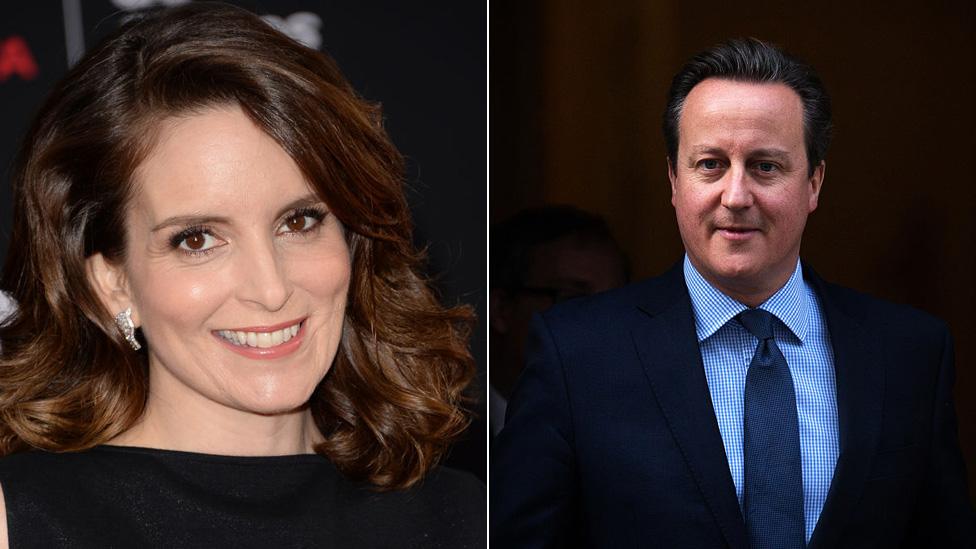
Tina Fey says David Cameron asked her to persuade the UK TV industry to make more episodes
It's not unusual for TV fans to wish that their favourite shows would carry on (Fleabag anyone?). But it seems viewers who long for more have an unlikely ally - former UK Prime Minister David Cameron.
Speaking on David Tennant's podcast, US writer and actress Tina Fey revealed that, while leader, Mr Cameron implored her to lobby the British TV industry to churn out as many episodes as US shows do.
"Come and convince our showrunners that they can't just make six episodes of things. Like you guys, they should make 200 episodes," she recalled him saying.
Fey rejected the request, however, explaining that US writers were, in fact, jealous of the less-is-more British approach.
UK shows tend to be authored by one writer - be that Fleabag's Phoebe Waller-Bridge or Derry Girls' Lisa McGee - and hold shorter runs of between six to eight episodes per series as a result.
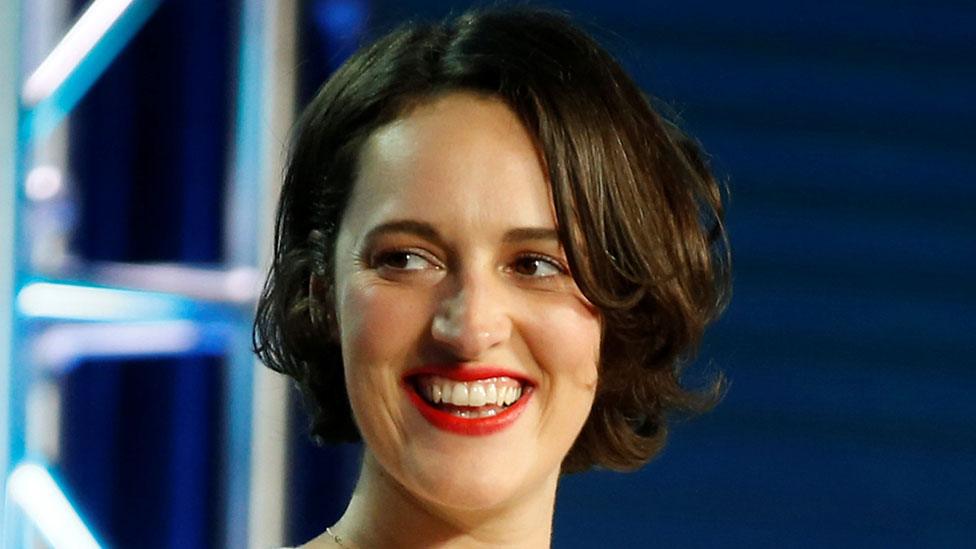
Phoebe Waller-Bridge's hit Fleabag isn't expected to return for a third season
In the US, meanwhile, scriptwriting is synonymous with the writers' room, in which a team of scribes - led by the showrunner - work together to produce up to 22 episodes a season.
Each writer will generally get to pen their own episode as part of the overall narrative arc. But, according to scriptwriter Gareth McLean, the showrunner always has the chance to "overwrite to add a consistency of tone".
Production timeframes also differ. Unlike the UK, where series are completed well ahead of time, writers of US shows often write from episode to episode. The closest we come to this in Britain is a soap, where multiple instalments are churned out per week.
There are also more eyeballs to reach, and therefore more money, in the US market.
Allow X content?
This article contains content provided by X. We ask for your permission before anything is loaded, as they may be using cookies and other technologies. You may want to read X’s cookie policy, external and privacy policy, external before accepting. To view this content choose ‘accept and continue’.
Bigger ratings make the US industry more lucrative for advertisers, says Ant Boys, a Bafta-nominated writer and editor with credits on both UK political satire The Thick of It and its stateside equivalent Veep.
"The biggest difference is that the US industry just has far more money pumped into it, and can afford to pay a room full or writers. The UK industry just can't," he says.
"In the early days of The Thick of It, we were making episodes for £80,000, but for the early episodes of Veep, we were looking at $3m (£2.3m) an episode,"
"When you have that disparity, the ability to hire more writers and produce more episodes is clear."
Less is more?
Having more money, writers and episodes doesn't necessarily mean the calibre of writing is any better or worse, of course.
But McLean says shorter runs can allow more succinct writing, authored in a way that can assure clarity of vision. "Confident" writers like Waller-Bridge use the brevity to great effect.
"In the case of Fleabag it was very much a case of, 'I've got a story to tell, I can tell it really clearly in the way I want to tell it.'"
The Office is an example of how the approaches can differ - Ricky Gervais and co-writer Stephen Merchant wrote 12 episodes, plus two Christmas specials, for the UK, whereas Greg Daniels' US adaptation turned it into into a 201-episode behemoth over nine seasons.
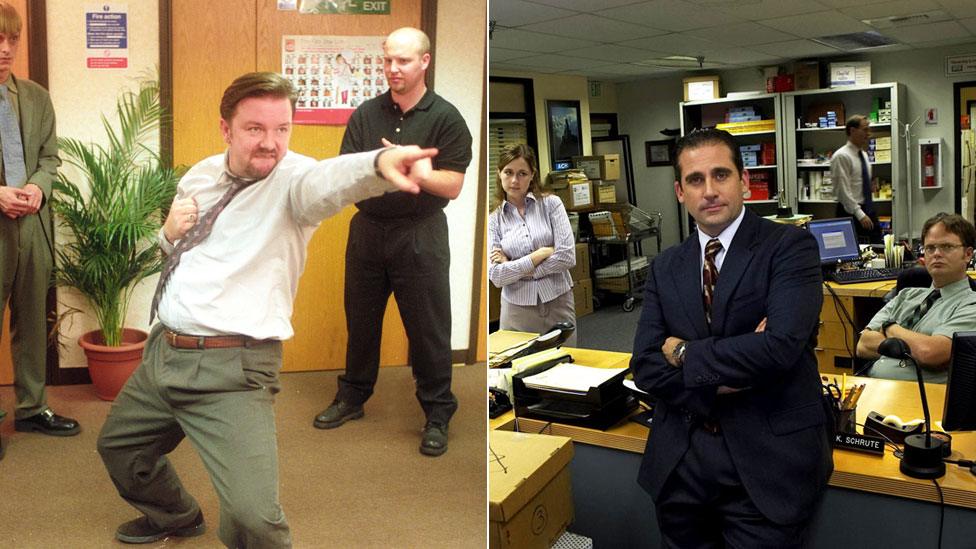
Ricky Gervais' UK version of The Office was much shorter than the US adaptation with Steve Carell
Fawlty Towers, which was recently named the best British sitcom ever by Radio Times, was 12 episodes long, while Peter Kay's Car Share recently concluded, also after 12 instalments.
Even long-running shows like Only Fools and Horses (64 episodes) and Blackadder (27) can't keep up with most hit US shows. Tina Fey's 30 Rock lasted for 138 episodes over seven seasons.
A room full of writers' heads can be better than one, but there are also clear commercial reasons for this expansion, as shows can go on to make big money through syndication once their original runs conclude.
US sitcom Seinfeld hit the headlines in 2013 after reportedly generating $3.1bn (£2.05bn), external in repeat fees since its final episode 15 years earlier.
Show me the money!
The UK TV industry similarly benefits from lucrative overseas sales. British producers earned more than £900m, external from selling their shows abroad in 2016/17. The contribution they make to the economy is likely to be the main reason David Cameron approached Fey, rather than his love of The Office or 30 Rock.
Commercial success "often means looking for ways to stretch something out even when it's not really feasible", says Guardian TV critic Hannah Davies.
While US shows can be churned out quickly, she says "super-long US shows such as Supernatural can become generally disjointed", particularly in the glare of union-led writers' strikes.
And this dominance of financial interests can strengthen further in syndication, with Seinfeld episodes "made shorter to free up more time per episode for adverts, increasing network revenue", says Sarah O'Connell, a YouTube host and film critic.
"Of course, watering down content ultimately affects its overall quality and enjoyment, so it's a fine balance."
Binge rules?
So, what of Cameron's suggestion?
Given the differences in funding levels between the traditional UK and US scriptwriting models, it would seem unrealistic.
But in the current age of streaming and binge-watching, normal rules don't apply.
Shows like The Sopranos and The Wire changed perceptions, according to culture journalist Manu Ekanayake, meaning "length is now practically expected". Stories are "deeper, characterisation more complex and sub-plots can unfold over a matter of years, rather than a season of six episodes".
Streaming services can also take more creative risks - dropping and commissioning shows throughout the year and producing award-winning original programming - at a pace that traditional broadcasters are unable to match.
But, in the carnage of what McLean describes as the "age of disruption", a middle ground is emerging in audience expectations.
Both Boys and McLean say the models are overlapping. British series like No Offence have used a writers' room, while such set-ups in the US are shrinking.

Game of Thrones' success has maintained "appointment viewing"
Davies says viewers are starting to become "more selective" to navigate the increasingly crowded TV marketplace.
Over the past year, Netflix and Amazon have signed up writers to exclusivity contracts, suggesting the divide may not be over quantity, but quality.
Waller-Bridge's decision to end Fleabag as it peaked in popularity reflects this.
"I think people were surprised to hear it was apparently finishing after two series," says Davies. "But doing so let it end on a high.
"Often you get the sense that some series, in particular US series, don't know quite when to stop."

Follow us on Facebook, external, on Twitter @BBCNewsEnts, external, or on Instagram at bbcnewsents, external. If you have a story suggestion email entertainment.news@bbc.co.uk.
- Published5 April 2019
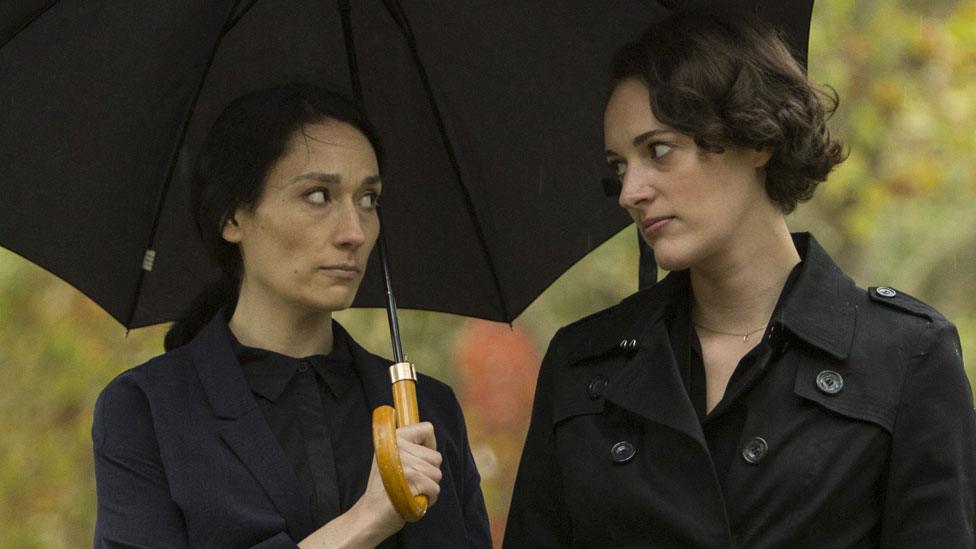
- Published18 January 2019
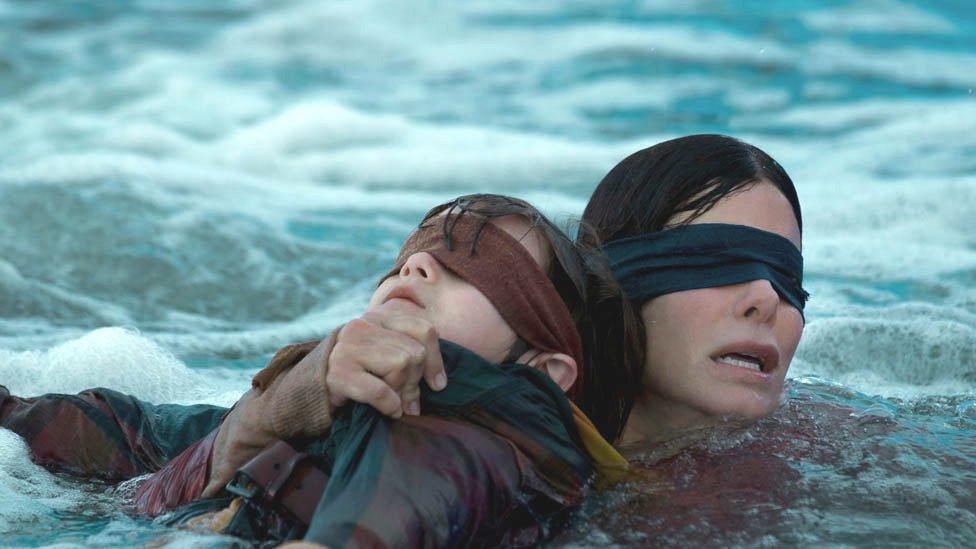
- Published18 September 2018
